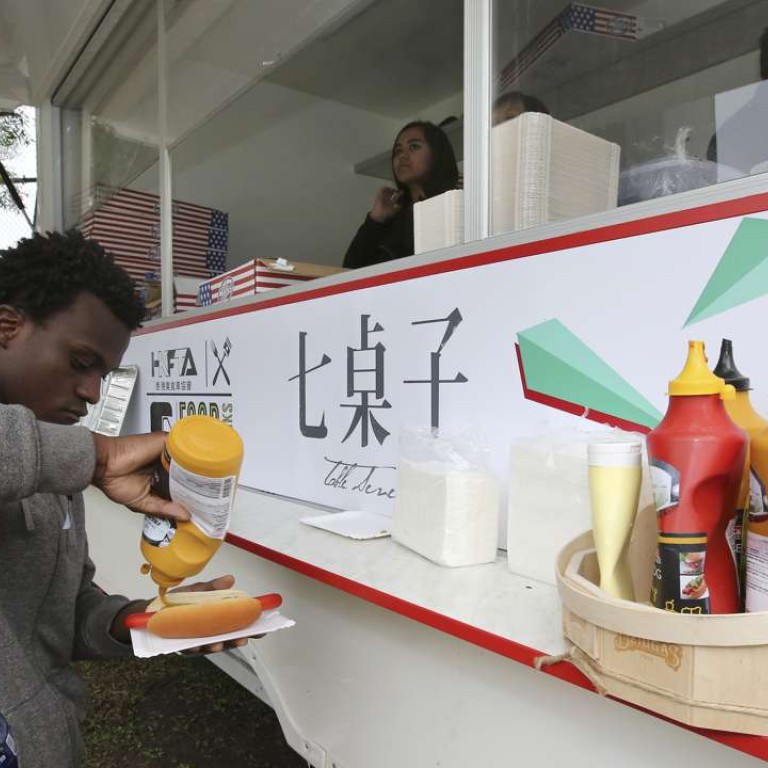
A tempting starter: incentives for small operators to join Hong Kong food truck scheme
Micro-enterprises will earn bonus points when applications are assessed, but big catering players still look to be in the driving seat
Incentives will be offered to small operators of food trucks when applications to the government scheme open on Thursday.
Ten per cent of marks in the first stage of assessment will be given to start-up micro-enterprises, a response to criticism that the programme would be dominated by big catering players.
However, Simon Chung, chief executive of the Hong Kong Food Truck Association, said restaurant chains could easily get around this hurdle by setting up separate small companies or co-operating with young operators.
Better than food trucks? Hongkongers try out bicycle-powered street food and snacks
The scheme, announced in Financial Secretary John Tsang Chun-wah’s budget last year, allows 16 food trucks to operate in eight tourist districts as a way to diversify the city’s tourism industry, which has relied too heavily in recent years on shoppers from mainland China.
Applicants will have to submit menu proposals, business plans and take part in a cook-off challenge in order to operate one of the food trucks.
“We hope that food trucks will enhance and enrich food options in Hong Kong and bring more specialty gourmet food to tourists and locals,” said Commerce Secretary Greg So Kam-leung, who was tasked to implement the scheme.
The main assessment criteria are the food concept and menu, accounting for 40 per cent of marks, the business and financial proposal (25 per cent) and the design of the vehicles (also 25 per cent). The remaining 10 per cent will be given exclusively to start-ups.
Street hawkers vs food trucks: Hong Kong loses out again
Eight to 15 per cent of the food trucks’ revenue will be charged as a service fee to cover electricity, waste disposal and cleaning.
“Big chains are considering registering a separate company – some already have – to secure the 10 bonus points,” said Chung, adding that seven or eight of the association’s members, all of whom were big restaurant chains, had throughly studied the application requirements.
“Some would also co-operate with young talents who don’t have the money, to run the campaign as sponsors” he said, adding that the promotional benefits to the companies would be enormous.
Hawkers don’t have the money or the resources to fight with big chains
A campaigner for hawkers’ rights said the strict hygiene standards, application process and investment needed would deter traditional sellers of street food.
“Hawkers don’t have the money or the resources to fight with big chains, even with the 10 extra bonus points,” said Leung Chi-yuen, a teaching fellow at Polytechnic University. “It has never been a programme to help underprivileged people.”
But tourism sector lawmaker Yiu Si-wing appreciated the government’s efforts to favour small players.
“[The move] gives confidence to young entrepreneurs” he said, “the 10 points will play an important role to win the game.”

